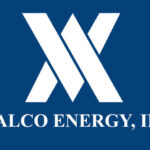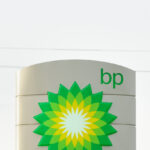BP said it started gas production from the first two fields, Taurus and Libra, of the West Nile Delta development in Egypt, eight months ahead of schedule.

First gas was exported to Egypt’s national grid on March 24, 2017 and the commissioning of all nine wells of the development’s first two fields and ramp up to stable operations has now been completed.
The West Nile Delta development, which includes five gas fields across the North Alexandria and West Mediterranean Deepwater offshore concession blocks, is being developed as two separate projects to enable BP and its partners to accelerate gas production commitments to Egypt.
When fully onstream in 2019, combined production from both projects is expected to reach up to almost 1.5 billion cubic feet a day (Bcf/day), equivalent to about 30 per cent of Egypt’s current gas production. All the gas produced will be fed into the national gas grid.
BP said its first project in the Taurus and Libra fields was fast-tracked to enable delivery of an annual average of more than 600 million standard cubic feet of gas a day (mmscf/d) to the Egyptian national gas grid. The fields are currently producing more than 700mmscf/d sales gas and 1000 barrels per day (bbls/d) condensate which is 20% higher than the planned sales gas plateau.
The Taurus and Libra project is a subsea greenfield development including nine wells (six in Taurus and three in Libra) and a 42 kilometre tie back to the existing onshore processing facility where gas enters the Egyptian national gas grid via a nearby export pipeline.
This is the second of seven major upstream projects that BP expects to come into production during 2017.
Together with the projects that began production in 2016, these new start-ups are expected to provide BP with 500,000 barrels equivalent a day (boe/d) of new production capacity by the end of this year. BP said that by the end of the decade its new projects along with others are expected to have added 800,000 BOEPD of new production.
Commenting on the project, Hesham Mekawi, BP North Africa regional president said, “Our plan is to progress our other discovered resources and to continue our exploration program and follow-on, allowing us to maintain our production to 2030 and beyond.”
Mekawi said that the West Nile project was delivered with lower capital levels compared to project sanction.
BP reported that its second West Nile Delta project, involving development of the Giza, Fayoum and Raven fields, is also ahead of schedule and below budget.
The second offshore project will involve twelve wells and two deep-water long distance subsea tie-backs to the shore. Fluids will be processed through an onshore plant modified for Giza and Fayoum and integrated with a new adjacent onshore plant for Raven. Production from these fields is expected to start in 2019.
BP is the operator The West Nile Delta project with 82.75 per cent equity in the project partnership; DEA Deutsche Erdoel AG holds the remaining 17.25% interest.
To date, BP Egypt, in collaboration with the Gulf of Suez Petroleum Company (GUPCO), BP’s joint venture (JV) Company with the Egyptian General Petroleum Company (EGPC), has produced almost 40% of Egypt’s entire oil production, and currently produces almost 10% of Egypt’s annual oil and condensate. In joint ventures with EGPC/EGAS and IEOC (ENI), the Pharaonic Petroleum Company (PhPC) and Petrobel, BP currently produces close to 40% of Egypt’s total gas, the company reported.







